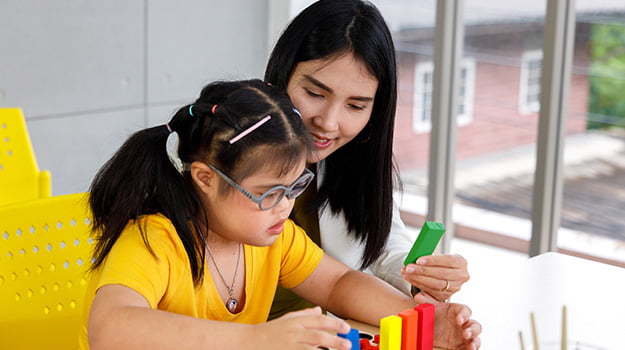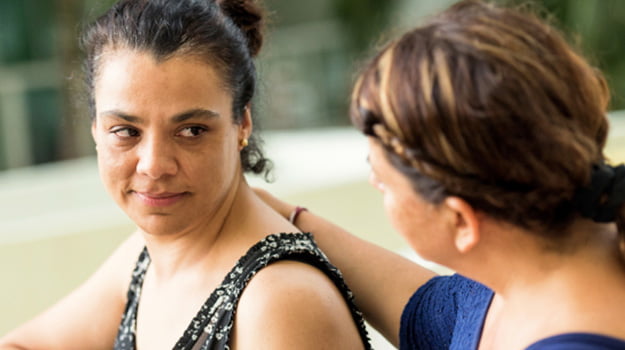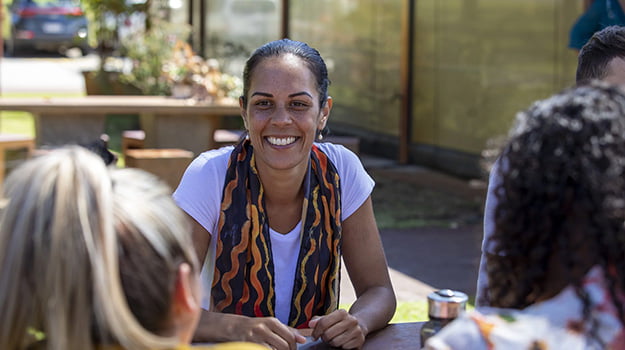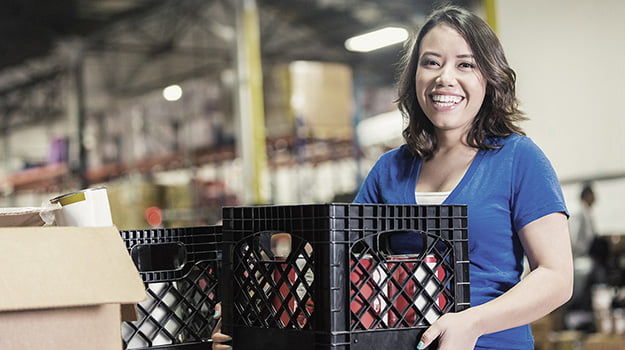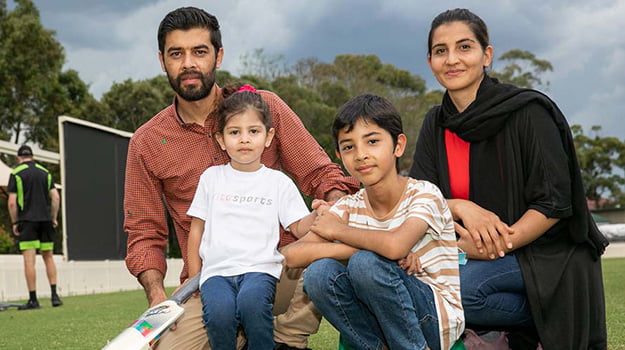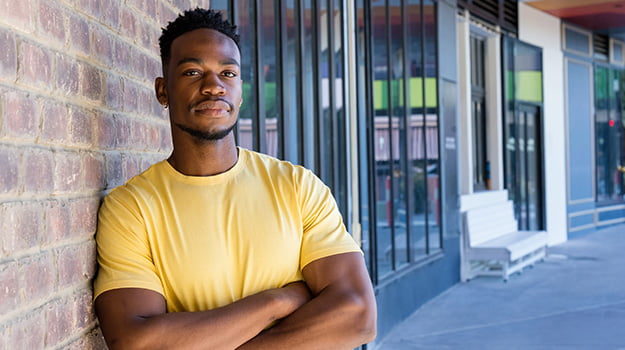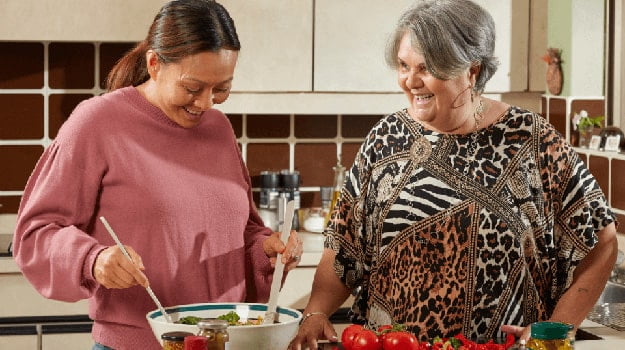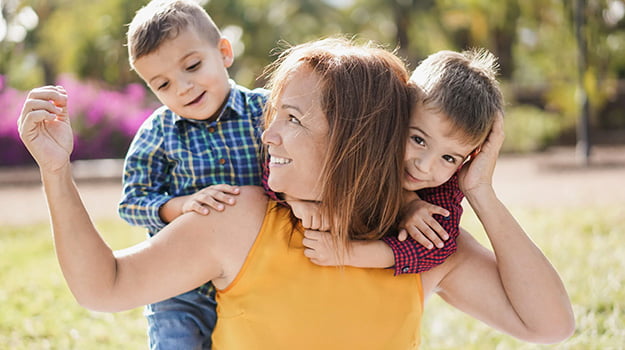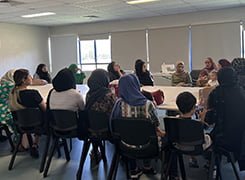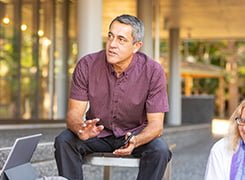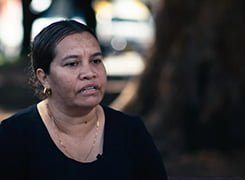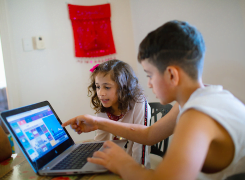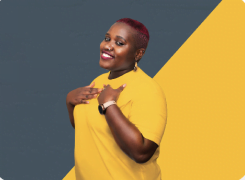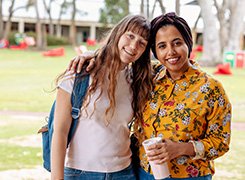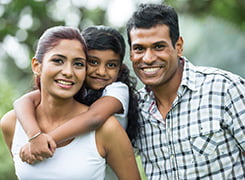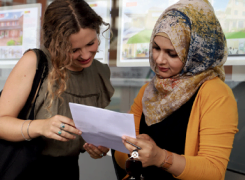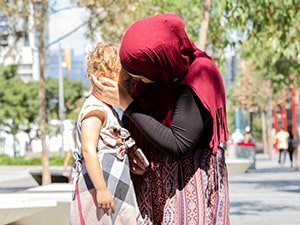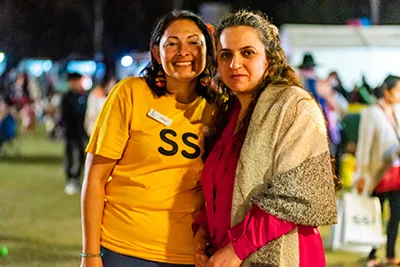-
Our servicesBrowse by category
-
Communities
 Uniting communities to thrive togetherExplore Communities
Uniting communities to thrive togetherExplore CommunitiesOur services engage and empower community members, foster collaboration, and promote positive change.
Services- Arts & Culture Program
- Brisbane Multicultural Arts Centre (BEMAC)
- Community Education Program
- Community Hubs Program
- Culturally and Linguistically Diverse (CALD) Women’s Advisory Group
- Ignite® Small Business Start-Ups
- Multicultural Sports Club (MSC)
- Multicultural Youth Queensland (MyQ)
- SSI Gateway
- SSI Welcome Program
- Strong and Resilient Communities
- Supporting U Program
- The Thriving Afghan Women project (TAWP)
-
Disability
 Helping you reach your goalsExplore Disability
Helping you reach your goalsExplore DisabilityWe’ll connect you with the support you need to thrive.
-
Diversity & Inclusion
 Living and breathing diversityExplore Diversity & Inclusion
Living and breathing diversityExplore Diversity & InclusionOur language services and diversity training workshops foster meaningful cultural awareness for organisations and individuals.
-
Domestic & Family Violence
 Building healthier homesExplore Domestic & Family Violence
Building healthier homesExplore Domestic & Family ViolenceOur educational and support programs empower adults and young people to identify and take action against abusive behaviour.
-
Education & Training
 Pathways for people to reach their full potentialExplore Education & Training
Pathways for people to reach their full potentialExplore Education & TrainingOur programs promote lifelong learning, foster economic opportunities, and enhance overall well-being and potential.
-
Employment
 Growing economic participation in AustraliaExplore Employment
Growing economic participation in AustraliaExplore EmploymentEnhancing the employability of individuals and supporting employers to create a diverse workforce and inclusive culture.
-
Family, Children & Youth
 Nurturing potential and building foundations for brighter futuresExplore Family, Children & Youth
Nurturing potential and building foundations for brighter futuresExplore Family, Children & YouthWe deliver a range of programs that help families, children, and youth to thrive and reach their full potential.
Services- 99 Steps
- Building Stronger Families
- Child Health Pathways
- Community Hubs Program
- Health Impact Project
- Maternity Hubs
- Multicultural Foster Care
- Multicultural Sports Club (MSC)
- Supporting U Program
- The Thriving Afghan Women project (TAWP)
- Youth Collective
- Youth Transitions Support Program (YTS)
-
Health & Wellbeing
 Supporting holistic well-being for individuals and communitiesExplore Health & Wellbeing
Supporting holistic well-being for individuals and communitiesExplore Health & WellbeingOur programs educate, empower, and support individuals to lead balanced and fulfilling lives.
-
Home Care
 Home Care Workforce Support ProgramExplore Home Care
Home Care Workforce Support ProgramExplore Home CareRecruiting and supporting an aged care workforce for the future.
Services -
Settlement
 Supporting newcomers across their settlement journeyExplore Settlement
Supporting newcomers across their settlement journeyExplore SettlementOur settlement services connect newcomers with resources, knowledge, and skills for personal growth and community integration.
Services- Community Education Program
- Community Support Program
- Emergency Relief
- Humanitarian Settlement Program (HSP)
- Ignite® Small Business Start-Ups
- NSW Settlement Partnership (NSP) and SETS
- Refugee Health Nurse Outreach Program
- Regional Settlement
- Settlement Engagement and Transition Support (SETS)
- Status Resolution Support Services (SRSS)
- Youth Collective
- Youth Transitions Support Program (YTS)
-
SSI Legal Pty Ltd
 Ethical support and solutions on immigration legal matters.Explore SSI Legal Pty Ltd
Ethical support and solutions on immigration legal matters.Explore SSI Legal Pty LtdA team led by experienced professionals and dedicated support.
Services
Communities Uniting communities to thrive togetherOur services engage and empower community members, foster collaboration, and promote positive change.Explore CommunitiesServices
Uniting communities to thrive togetherOur services engage and empower community members, foster collaboration, and promote positive change.Explore CommunitiesServices- Arts & Culture Program
- Brisbane Multicultural Arts Centre (BEMAC)
- Community Education Program
- Community Hubs Program
- Culturally and Linguistically Diverse (CALD) Women’s Advisory Group
- Ignite® Small Business Start-Ups
- Multicultural Sports Club (MSC)
- Multicultural Youth Queensland (MyQ)
- SSI Gateway
- SSI Welcome Program
- Strong and Resilient Communities
- Supporting U Program
- The Thriving Afghan Women project (TAWP)
Disability Helping you reach your goalsWe’ll connect you with the support you need to thrive.Explore DisabilityDiversity & Inclusion
Helping you reach your goalsWe’ll connect you with the support you need to thrive.Explore DisabilityDiversity & Inclusion Living and breathing diversityOur language services and diversity training workshops foster meaningful cultural awareness for organisations and individuals.Explore Diversity & InclusionDomestic & Family Violence
Living and breathing diversityOur language services and diversity training workshops foster meaningful cultural awareness for organisations and individuals.Explore Diversity & InclusionDomestic & Family Violence Building healthier homesOur educational and support programs empower adults and young people to identify and take action against abusive behaviour.Explore Domestic & Family ViolenceEducation & Training
Building healthier homesOur educational and support programs empower adults and young people to identify and take action against abusive behaviour.Explore Domestic & Family ViolenceEducation & Training Pathways for people to reach their full potentialOur programs promote lifelong learning, foster economic opportunities, and enhance overall well-being and potential.Explore Education & TrainingEmployment
Pathways for people to reach their full potentialOur programs promote lifelong learning, foster economic opportunities, and enhance overall well-being and potential.Explore Education & TrainingEmployment Growing economic participation in AustraliaEnhancing the employability of individuals and supporting employers to create a diverse workforce and inclusive culture.Explore EmploymentFamily, Children & Youth
Growing economic participation in AustraliaEnhancing the employability of individuals and supporting employers to create a diverse workforce and inclusive culture.Explore EmploymentFamily, Children & Youth Nurturing potential and building foundations for brighter futuresWe deliver a range of programs that help families, children, and youth to thrive and reach their full potential.Explore Family, Children & YouthServices
Nurturing potential and building foundations for brighter futuresWe deliver a range of programs that help families, children, and youth to thrive and reach their full potential.Explore Family, Children & YouthServices- 99 Steps
- Building Stronger Families
- Child Health Pathways
- Community Hubs Program
- Health Impact Project
- Maternity Hubs
- Multicultural Foster Care
- Multicultural Sports Club (MSC)
- Supporting U Program
- The Thriving Afghan Women project (TAWP)
- Youth Collective
- Youth Transitions Support Program (YTS)
Health & Wellbeing Supporting holistic well-being for individuals and communitiesOur programs educate, empower, and support individuals to lead balanced and fulfilling lives.Explore Health & WellbeingHome Care
Supporting holistic well-being for individuals and communitiesOur programs educate, empower, and support individuals to lead balanced and fulfilling lives.Explore Health & WellbeingHome Care Home Care Workforce Support ProgramRecruiting and supporting an aged care workforce for the future.Explore Home CareServicesSettlement
Home Care Workforce Support ProgramRecruiting and supporting an aged care workforce for the future.Explore Home CareServicesSettlement Supporting newcomers across their settlement journeyOur settlement services connect newcomers with resources, knowledge, and skills for personal growth and community integration.Explore SettlementServices
Supporting newcomers across their settlement journeyOur settlement services connect newcomers with resources, knowledge, and skills for personal growth and community integration.Explore SettlementServices- Community Education Program
- Community Support Program
- Emergency Relief
- Humanitarian Settlement Program (HSP)
- Ignite® Small Business Start-Ups
- NSW Settlement Partnership (NSP) and SETS
- Refugee Health Nurse Outreach Program
- Regional Settlement
- Settlement Engagement and Transition Support (SETS)
- Status Resolution Support Services (SRSS)
- Youth Collective
- Youth Transitions Support Program (YTS)
SSI Legal Pty Ltd Ethical support and solutions on immigration legal matters.A team led by experienced professionals and dedicated support.Explore SSI Legal Pty LtdServicesClose
Ethical support and solutions on immigration legal matters.A team led by experienced professionals and dedicated support.Explore SSI Legal Pty LtdServicesClose -
-
Policy & advocacyBackClose
-
Our workBackClose
-
Get involvedBackClose
- Subscribe

